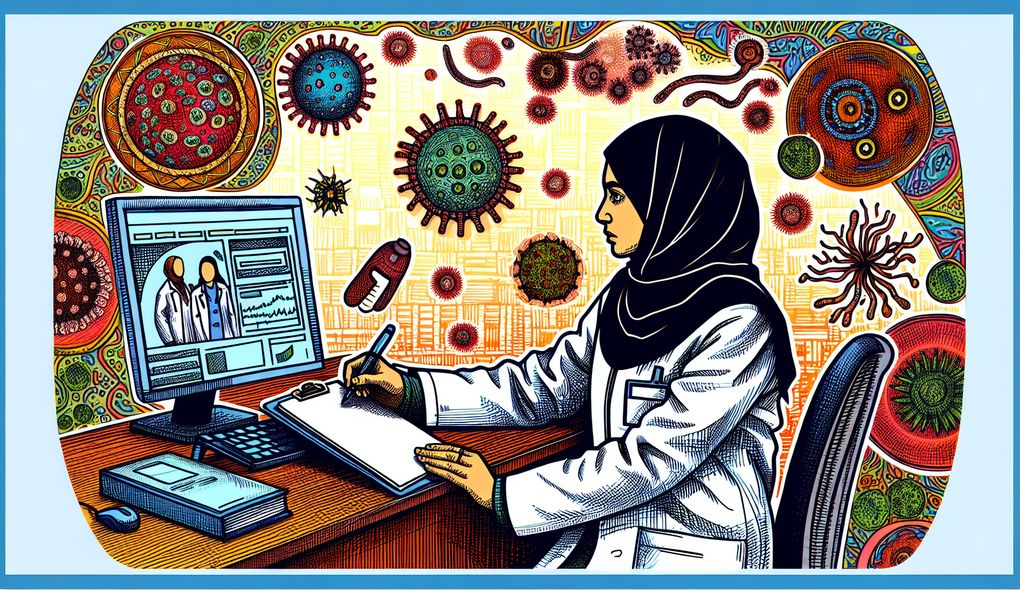What steps do you take to ensure the ethical conduct of epidemiological research?
INTERMEDIATE LEVEL

Sample answer to the question:
To ensure the ethical conduct of epidemiological research, I follow several steps. First, I make sure to obtain informed consent from study participants, providing them with all necessary information about the research. I also ensure that their privacy and confidentiality are protected by de-identifying data and using secure storage systems. Additionally, I comply with all relevant ethical guidelines and regulations, such as those outlined by the World Medical Association's Declaration of Helsinki. I also maintain transparency in my research process by documenting and disclosing any conflicts of interest. Finally, I regularly engage in ethical discussions with colleagues to ensure that our research practices align with ethical standards.
Here is a more solid answer:
Ensuring the ethical conduct of epidemiological research is of utmost importance to me. To achieve this, I follow a rigorous process that begins with obtaining informed consent from study participants, ensuring they fully understand the purpose, procedures, risks, and benefits of the research. I adhere to all relevant ethical guidelines, such as the World Medical Association's Declaration of Helsinki, and institutional review board (IRB) requirements. In terms of confidentiality and privacy protection, I take measures to de-identify data and use secure storage systems. I also implement strict access controls to limit data exposure. Transparency is another key aspect of ethical research. I document and disclose any conflicts of interest and maintain detailed records of the research process to promote transparency and accountability. Additionally, I actively engage in ethical discussions with colleagues and seek their input in decision-making processes to ensure a collective and informed approach to ethical considerations.
Why is this a more solid answer?
The solid answer expands on the basic answer by providing more specific details and examples that demonstrate the candidate's experience and understanding of ethical considerations in epidemiological research. The candidate discusses the process of obtaining informed consent, adherence to relevant ethical guidelines and institutional review board requirements, measures taken to protect confidentiality and privacy, and the importance of transparency. The answer also emphasizes the candidate's commitment to ethical discussions and decision-making processes in collaboration with colleagues. However, the answer could still benefit from further elaboration on the candidate's experience with ethical dilemmas and how they have addressed them.
An example of a exceptional answer:
Ensuring the ethical conduct of epidemiological research is a fundamental aspect of my work. I am deeply committed to upholding the highest ethical standards throughout the research process. To achieve this, I take a proactive approach that encompasses several key steps. Firstly, I prioritize informed consent by developing comprehensive participant information sheets and consent forms that are easy to understand and provide all necessary details about the study. I also ensure ongoing consent by regularly communicating with participants and addressing any questions or concerns they may have. Secondly, I actively seek guidance from relevant regulatory bodies and review boards to ensure compliance with ethical guidelines and regulations. I keep myself well-informed about the latest updates and revisions in ethical standards to continuously improve my practice. When it comes to confidentiality and privacy protection, I implement stringent procedures, including data de-identification, encrypted storage systems, and limited access to sensitive information. Furthermore, I regularly engage in ethical discussions with colleagues, participating in journal clubs, research seminars, and professional conferences where ethical considerations are addressed. These discussions provide valuable insights and perspectives that enhance my ethical decision-making. In my experience, I have encountered ethical dilemmas related to data sharing and publication practices. In these instances, I have approached the challenges by collaborating with stakeholders, such as data custodians and co-authors, to find mutually agreeable solutions that prioritize participant privacy while fulfilling scientific responsibilities. I believe that fostering a culture of ethical reflection and accountability is crucial in shaping a responsible and trustworthy field of epidemiology.
Why is this an exceptional answer?
The exceptional answer demonstrates a deep understanding of ethical considerations in epidemiological research. The candidate provides specific details and examples to illustrate their commitment to ethical conduct. They discuss their approach to informed consent, highlighting the development of comprehensive participant information materials and ongoing communication. The candidate also emphasizes their proactive stance in seeking guidance from regulatory bodies, staying informed about ethical updates, and implementing strict procedures for confidentiality and privacy protection. The answer goes beyond the previous answers by addressing ethical dilemmas related to data sharing and publication practices and showcasing the candidate's problem-solving skills and collaborative approach. Overall, the answer showcases the candidate's strong ethical mindset and their ability to navigate complex ethical challenges in the field of epidemiology.
How to prepare for this question:
- Familiarize yourself with ethical guidelines and regulations within the field of epidemiology, such as the World Medical Association's Declaration of Helsinki.
- Reflect on your past experiences with ethical considerations in your research projects and be prepared to provide specific examples during the interview.
- Stay updated on the latest developments and debates in ethics within the field of epidemiology by attending conferences, participating in journal clubs, and reading relevant literature.
- Practice discussing ethical dilemmas you have encountered and how you have addressed them in a collaborative and responsible manner.
- Highlight your commitment to ongoing ethical discussions and the importance of fostering an ethical culture in the field of epidemiology.
What are interviewers evaluating with this question?
- Ethical conduct
- Regulatory compliance
- Confidentiality and privacy protection
- Transparency
- Ethical discussions

